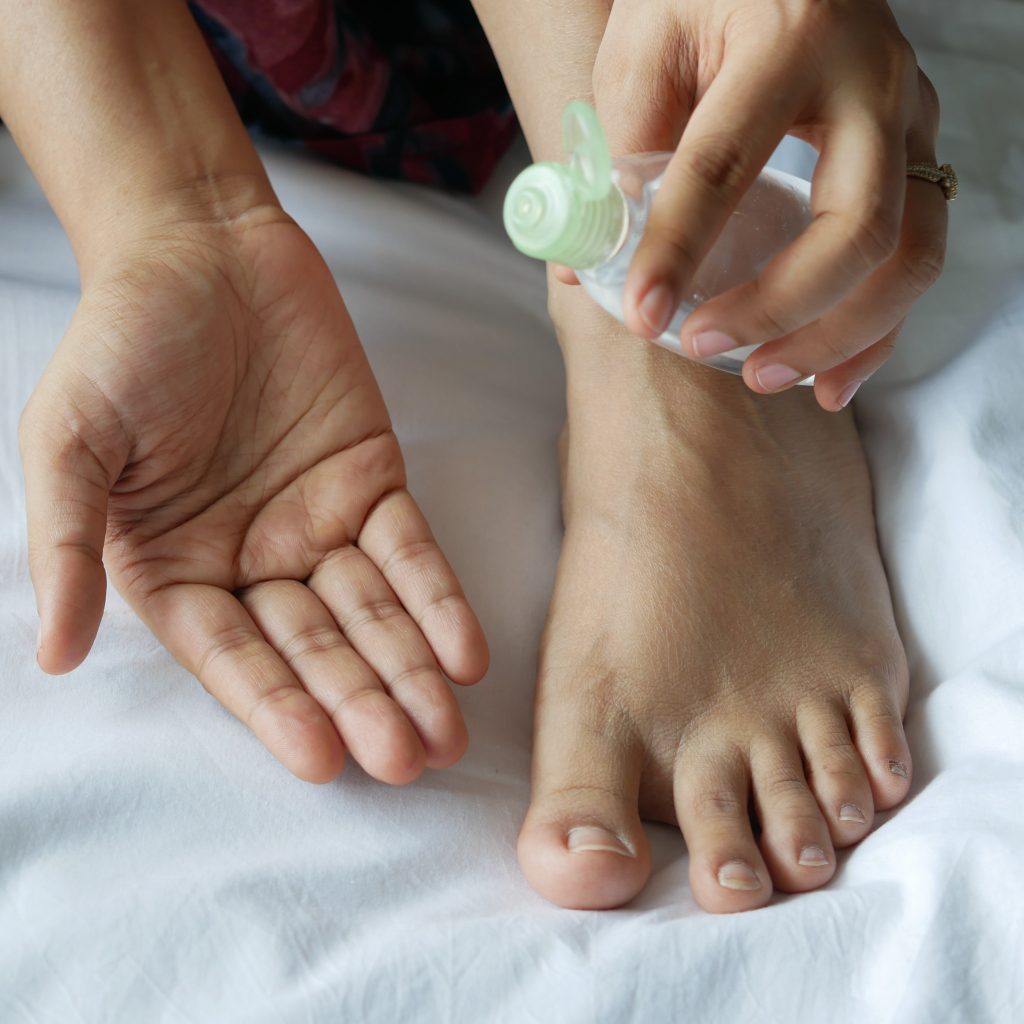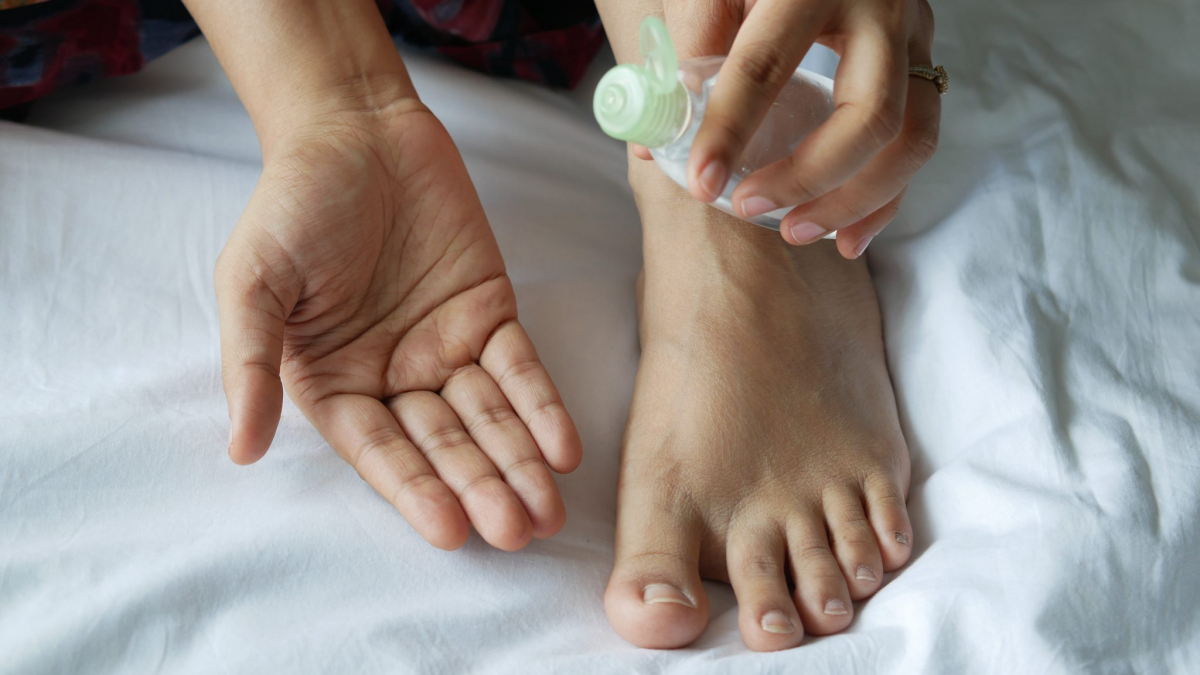Welcome back to our blog! In today’s post we’re going to be sharing our 5 tips to get relief from Plantar Fasciitis at home.
If you missed our first blog post where we explained exactly what Plantar Fasciitis is, and who is most likely to get it, click here to have a read.
Now, put your feet up and get comfy, it’s time to get into into our top 5 tips.

1. Make the most of massage
There’s nothing more relaxing than a massage, so treat yourself to a little ‘you’ time whilst you work the aches and pains away. Better yet, ask a family member or friend to massage your foot for you – paying extra attention to the heel.
2. Ice up
Using cool packs can really help to ease the inflammation caused by Plantar Fasciitis. Plus, a cool compress feels great on painful, heavy feet. Use your compress three to four times a day for around 10-15 minutes at a time for the best results.
3. Self medicate
Over the counter medication like Ibuprofen is helpful for conditions that cause pain through inflammation. NSAIDs like this (non-steroidal anti-inflammatory drugs) work by blocking your body’s production of certain natural substances that cause inflammation. In turn, this decreases swelling and eases pain.
4. Give your footwear a health check
Guilty of squeezing into skyscraper heels that look absolutely gorgeous but leave your feet feeling battered and bruised? Or perhaps you’re besotted by ballet flats and flip flips? Either way, if your shoes don’t have built in arch support and are sturdy and well-cushioned, it’s a one way street towards foot pain.
5. Limit activity (and inactivity)
We know it’s tricky to find a balance here, but it’s crucial that you don’t do too much, or too little. If you work in an office and have to be seated for longer periods of time, make sure to get up often and have a little walk around. Work in retail where you’re constantly on your feet? Ensure to sit down for rest periods to ease the pain and discomfort.
BONUS TIP!
The best way to get relief from Plantar Fasciitis is with the help of a Podiatrist. We understand the pain this condition causes, and have treatments available to help get you back on your feet again and feeling fabulous.
Give us a call today on 01226 759 660 or contact us here to book your appointment.
Join us next week for a new post on how we can help you to get relief from Plantar Fasciitis with our specialist treatments.







